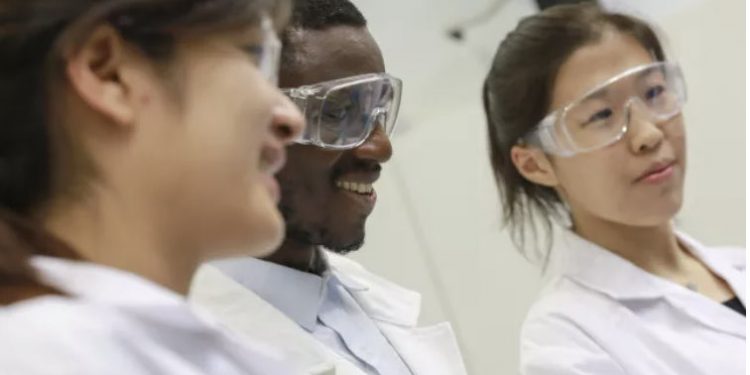"The world faces immense challenges in the 2020s and we can only jointly overcome them as a global community. In these times of coronavirus and climate change, it is more important than ever that we act across borders to protect ourselves from pandemics and combat the increasingly severe effects of the climate crisis. These new global climate and healthcare centres facilitate the international academic interchange that we require to find solutions to these existential challenges for humanity"
– Professor Joybrato Mukherjee, DAAD President
"We will not have the ability to provide answers to the great challenges of our time without shared knowledge and without strong global partnerships. DAAD’s eight new global centres of expertise, which we are financing with funds from the AA, will make a significant contribution to this. I’m particularly pleased about the close interaction between academia, politics, business and civil society that these new centres have set out to achieve. This type of networking is one of the important tasks of foreign policy as international social policy, as it is defined in our scientific diplomacy strategy"
– Michelle Müntefering, Minister of State for International Cultural and Educational Policy at the Federal Foreign Office.
For establishment of the centres, which are to be set up in countries in the Global South, applications are invited from German higher education institutions with partners from the respective countries and in close cooperation with further German and international partner organisations. Each centre will receive 600,000 euros in funding per year – initially up to 2025, but with the possibility of extension until 2030.
The selected centres will provide interdisciplinary instruction and research and will develop close ties with academia, politics, business and civil society to ensure that new findings are transferred into practice. They will also be networked with each other to contribute to global solutions.
The four climate and environmental centres will work among other things on water security in South and South-east Asia, phasing out the use of coal in Colombia and South Africa, protection of West and East African savannah regions and issues of appropriate land use in the Jordan Valley. The four healthcare and pandemic preparedness centres in Vietnam, Ghana, Gabon and Cuba/Mexico will focus on the prevention and treatment of infectious diseases. Their objective is to enhance the local capability to prevent and treat communicable diseases and improve crisis preparedness, response and follow-up. These centres will accordingly provide education via the likes of international master´s degree courses, PhD programmes and professional development and will enable international exchange, including within the Global South.
The climate and environment centres
- India (with a satellite in Thailand): Global Water and Climate Adaptation Centre (ABCD Centre), Dresden University of Technology and RWTH Aachen University, Indian Institute of Technology Madras and Asian Institute of Technology Bangkok
- Columbia (with a satellite in South Africa): Transnational Centre for Just Transitions in Energy, Climate & Sustainability (TRAJECTS), Technical University of Berlin, National University of Colombia and University of Cape Town
- The Republic of Côte d’Ivoire/Kenya: African Climate and Environment Centre – Future African Savannas (AFAS), University of Bonn, University Félix Houphouët-Boigny and University of Nairobi
- Jordan (in cooperation with Palestine and Israel): Regional Centre for Sustainable Adaptation to Global Change in the Middle East (SAGE Centre), University of Tübingen, University of Jordan
The healthcare and pandemic preparedness centres
- Vietnam: PAN ASEAN Coalition for Epidemic and Outbreak Preparedness (PACE-UP), University of Tübingen, Vietnamese-German Center of Excellence in Medical Research
- Ghana: German-West African Centre for Global Health and Pandemic Prevention (G-WAC), Berlin School of Public Health (Technical University of Berlin and Charité Berlin) and the University of Bonn, Kwame Nkrumah University of Science and Technology
- Cuba/Mexico: German-Latin American Centre of Infection & Epidemiology Research and Training (GLACIER), Charité Berlin and Martin Luther University Halle-Wittenberg, University of Havana and the National Autonomous University of Mexico (UNAM)
- Gabon: Central African Infectious Disease and Epidemics Research Alliance (CAIDERA), the University of Tübingen, Centre de Recherches Médicale de Lambaréné (CERMEL)
For more information:
http://www.daad.de/globalezentren

